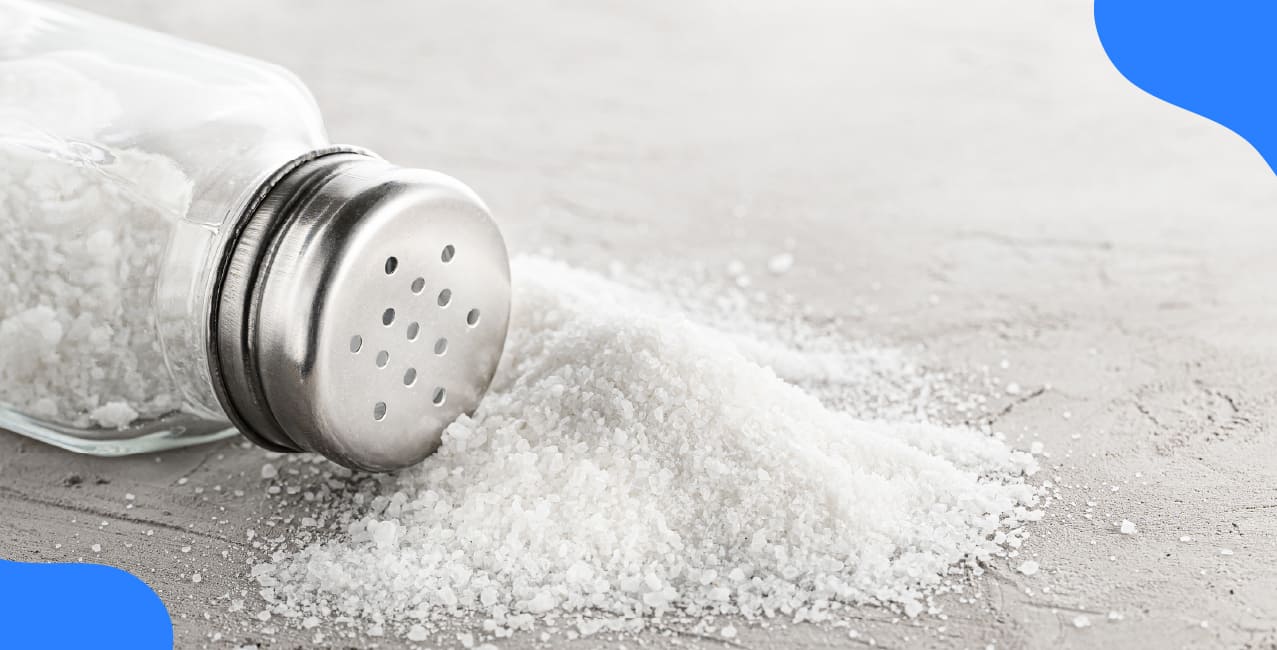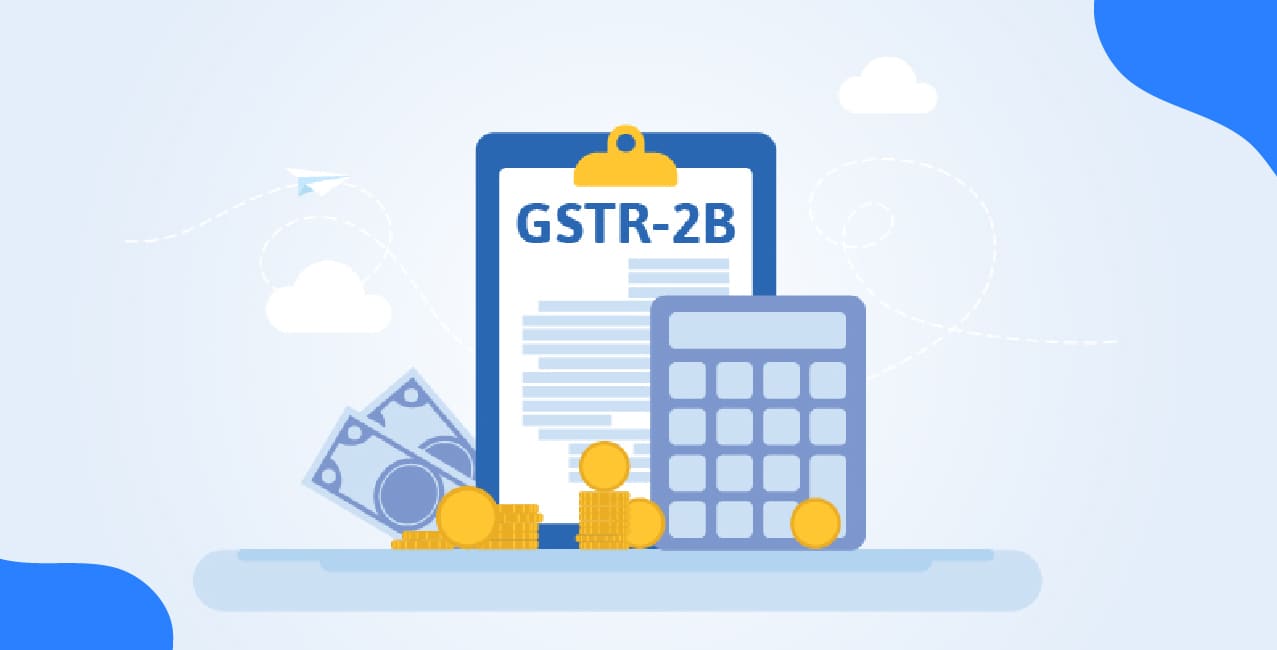GST on Salt: Complete Guide to Rates & Exemptions

Check Your Loan Eligibility Now
By continuing, you agree to LoansJagat's Credit Report Terms of Use, Terms and Conditions, Privacy Policy, and authorize contact via Call, SMS, Email, or WhatsApp
Key Insights
1. Indian families may find kitchens more affordable thanks to the recent change in GST rates.
2. Even if there is no tax owed, sellers must use the correct HSN code, 2501.
3. This blog contains the most recent information from the food industry as well as instructions on how to calculate GST for salt.
India's tax system has been simplified with the implementation of the Goods and Services Tax (GST) on food items, which gives you the necessary items at an affordable rate for everyone.
Let's see how Ramesh saves money through the new GST on Food Items:
Ramesh, a middle-class man, was happy to read about reduced GST rates on many everyday food items. This change directly affects Ramesh's household budget.
The table below shows Ramesh's monthly savings based on the GST rates for the products he regularly buys.
Ramesh pays only ₹250 in tax on these items. These rates show the monthly savings of Ramesh.
This blog helps you understand the GST on food items, and next, we will talk about the HSN No of Salt and the GST Rate.
HSN Code and GST Rate of Salt
Read More - GST On Jaggery – Rates, Classification & Tax Impact
Salt is classified using the HSN Code, a standardised code used worldwide for trade and tax purposes. The primary 4-digit HSN code for salt is 2501.
"Salt (including table salt and denatured salt) and pure sodium chloride."
For accurate classification, this code is further divided into more detailed 6 and 8-digit codes, all of which are eligible for a 0% GST rate in India, highlighting their status as necessary, tax-exempt goods.
Let's understand the HSN Code and GST Rate, as explained by Mohit. Example:
Mohit started a business supplying packaged iodised salt in the local market. His friend, a Chartered Accountant, told him the importance of using the correct HSN code. Mohit found that the specific code for his product is 2501.00.20 (edible salt).
The table below details the various HSN codes applicable to salt and their descriptions:
This HSN number helped Mohit to manage his supply chain without any tax penalty difficulties.
Now that you know the GST and HSN Code of salt, we will discuss why salt is exempt from GST.
Bonus Tip: All forms of salt, including table salt, sea salt, rock salt (sendha namak), and iodised salt, are classified under a 0% GST slab. This includes salt used for human consumption, animal feed, and agricultural purposes.
Why is salt exempt from GST?
Salt is a necessity for everyone and is not taxed under GST. The government has set the tax rate at 0% to make it affordable for everyone, showing that they prioritise public welfare over making money.
This exemption is based on several important reasons:
- Essential Commodity: Salt is a fundamental dietary requirement, crucial for preventing iodine deficiency disorders and maintaining overall health. Taxing it would be seen as a tax on health itself.
- Social Welfare: A large portion of India's population is highly price-sensitive. Even a small tax could make salt unaffordable for some, leading to public health issues.
- Historical Significance: The exemption carries the legacy of India's independence movement and Mahatma Gandhi's Salt Satyagraha, symbolising its importance to the ordinary person.
- Inflation Control: As a key ingredient in many food products, taxing salt would have a cascading effect, increasing the cost of a wide range of goods and contributing to inflation.
The government wants the price of salt to be low for every indian; thereby protecting the budgets of the poorest households.
Learn More - GST on Atta – Why Your Daily Dough Now Costs a Bit More
How to Calculate GST for Salt?
- Salt:
- Product Price: ₹100
- GST Rate: 0%
- GST Amount = (100 × 0) / 100 = ₹0
Bonus Tip: For a business, "nil-rated" means they must still comply with filing GST returns if registered, while "exempt" supplies might not require filing in specific cases. Salt is classified as nil-rated.
Recent Updates on GST for Food Products:
The GST Council has recently suggested reducing tax rates on many food products. These changes aim to lower inflation, make essential food items more affordable for our people, and improve the tax process for the food industry.
- Rate Reduction on Processed Foods: The GST on several everyday kitchen staples like pickles, sauces, and preserved vegetables has been slashed from 12% to 5%, making them cheaper.
- Focus on Dried Fruits and Nuts: A major revision affects the dried fruit and nut category, promoting healthier snacking options by reducing rates.
- Simplified Compliance: The government is working to simplify GST filing and documentation processes for small and medium-sized food businesses, helping to lower their administrative burdens.
- Discussions on Zero-Rating: There have been continuous discussions about including more basic food items in the 0% GST category to make them more affordable.
This proactive approach focuses on reducing the tax burden on everyday household items. Now you know the recent updates about the food items.
Is Salt Covered under Essential Commodities in GST?
Since salt is regarded as a necessary good, it is exempt from GST in India. In other words, salt has a 0% GST rate and is not subject to GST when sold.
Conclusion
This blog has shown how GST genuinely impacts your daily life, from the salt in your kitchen to the snacks in your pantry.
These tax rules are not merely about policies; they ensure life is easier when buying essential food items like salt, which remain affordable for everyone, just as they did for Ramesh and Mohit. The government concentrates on middle-class families and small businesses.
FAQs
I have a small shop. Do I need to register for GST if I only sell salt?
If your total business turnover is below ₹20 lakhs, you are not required to register for GST.
Why does my salt bill sometimes show a GST of 0%?
This is correct. The seller is just being transparent by showing the tax rate, even though it is zero.
Is there GST on salt used for cleaning or industrial purposes?
No, all salt, whether for eating or industry, is under the 0% GST slab.
Can I claim Input Tax Credit (ITC) on expenses if I sell salt?
No. Since the sale of salt is a nil-rated supply (0% GST), you are not allowed to claim Input Tax Credit on your purchases (like packaging, logistics) related to the sale of salt.
Other Related Pages | |||
About the author

LoansJagat Team
Contributor‘Simplify Finance for Everyone.’ This is the common goal of our team, as we try to explain any topic with relatable examples. From personal to business finance, managing EMIs to becoming debt-free, we do extensive research on each and every parameter, so you don’t have to. Scroll up and have a look at what 15+ years of experience in the BFSI sector looks like.
Subscribe Now
Related Blog Post
Recent Blogs
All Topics
Contents
Quick Apply Loan
Consolidate your debts into one easy EMI.
Takes less than 2 minutes. No paperwork.
10 Lakhs+
Trusted Customers
2000 Cr+
Loans Disbursed
4.7/5
Google Reviews
20+
Banks & NBFCs Offers
Other services mentioned in this article








